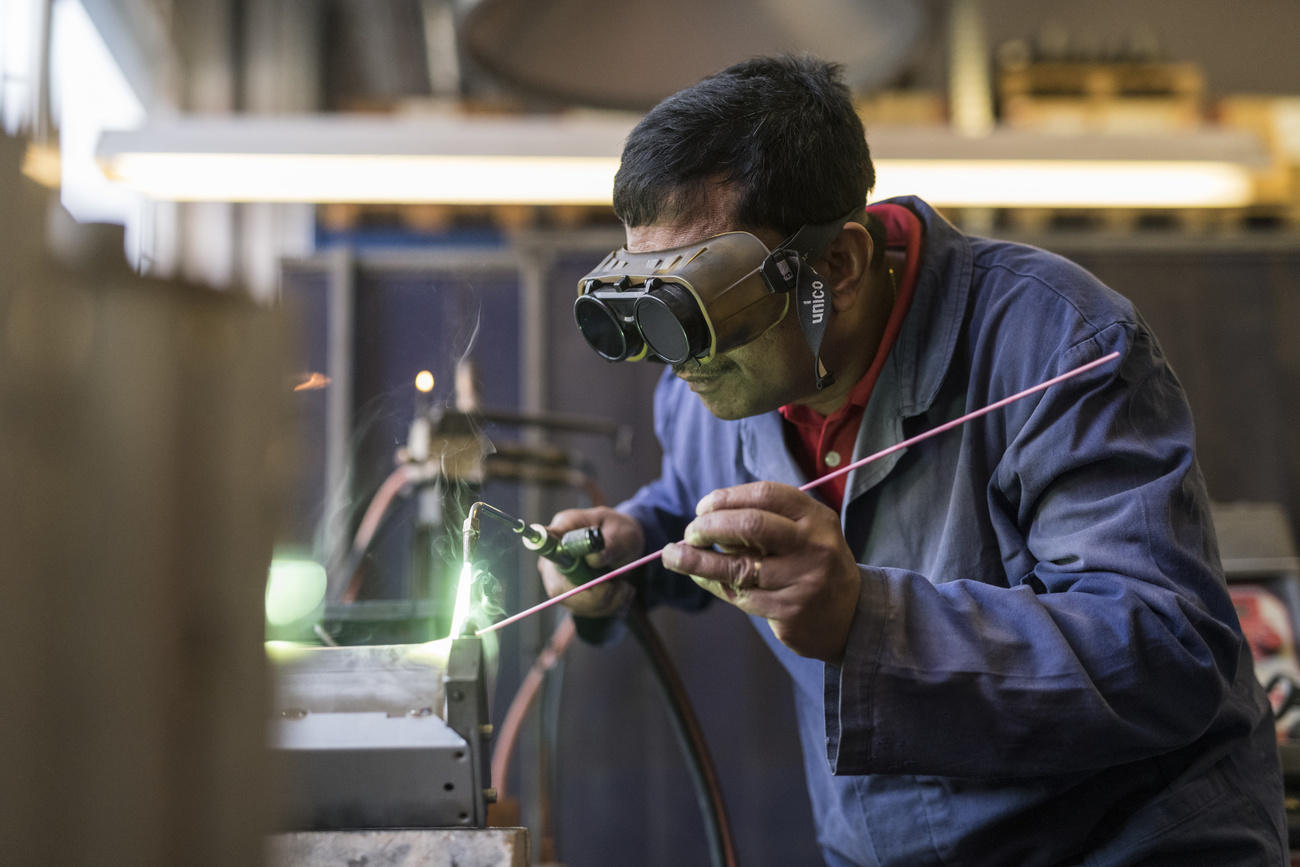
Swiss cantons given permission to shut manufacturing activities

Swiss cantons will be allowed to shut down industrial activities if they show a risk of spreading coronavirus, the government has announced. The ruling, which comes with strict conditions, follows a decision by canton Ticino to ban certain manufacturing production.
On Sunday, Ticino, which borders Italy, ordered non-essential industries to cease production. This went further than a previous federal order for many high street shops and services to close their doors.
The government had only authorised the closure of industries or construction sites that did not meet rules on separation of workers and hygiene.
Ticino’s crackdown was condemned by one leading manufacturing association, Swissmem, which warned that production line closures could result in supply line bottlenecks throughout the country.
Canton Uri had also been criticised for ordering people aged over-65 to remain at home, despite Swiss government measures falling short of curfews.
At stake: financial aid
On Friday the government said production line closures would be allowed if certain conditions are met.
The health system of the affected canton must have reached saturation point, even after receiving support from other cantons. It must be shown that the industry cannot implement measures to prevent the spread of the virus and the shutdown must meet with the approval of “social partners”.
Industrial curfews are not allowed to affect the manufacture and supply of essential goods, such as medicines and food, the government said.
Failure to comply with the guidelines on the closure of manufacturing operations would disqualify workers from receiving financial aid from the state, the government said.

More
Coronavirus: the situation in Switzerland

In compliance with the JTI standards
More: SWI swissinfo.ch certified by the Journalism Trust Initiative































You can find an overview of ongoing debates with our journalists here . Please join us!
If you want to start a conversation about a topic raised in this article or want to report factual errors, email us at english@swissinfo.ch.